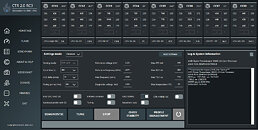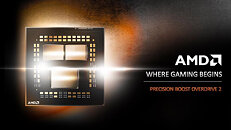
ASRock BIOS Update Mentions Next-gen AMD CPU Compatibility - Possibly Ryzen 9000G Series
Yesterday, ASRock's South Korean office issued a statement regarding problematic hardware pairings; affecting current-gen motherboards and AMD Ryzen 9000 "Granite Ridge" desktop processors. Curiously, the Taiwanese manufacturer's local branch slipped in an intriguing tidbit into its message, addressed to members of the Quasar Zone forum: "ASRock has released a new BIOS version 3.25. This version is based on AMD AGESA 1.2.0.3d, and has been improved to enhance compatibility with next-generation CPUs and optimize PBO (Precision Boost Overdrive) settings to enable more stable system operation." Due to media outlets focusing on an important BIOS update, a major hint was largely ignored. Fortunately, VideoCardz's keen eye was not distracted by current affairs.
According to their evening report (dated June 4), their local contacts have confirmed that there are no misunderstandings when Westerners machine translate ASRock Korea's original statement. Naturally, guess work—about the company's teasing of next-gen processors—will land on two upcoming Team Red product families. VideoCardz quickly eliminated a successive "Zen 6" CPU series, aka "Ryzen 10000." Despite recent leaks, industry watchdogs anticipate (at best) a mid-2026 debut. Given the uptick of semi-official Ryzen 9000G "Gorgon Point" leaks throughout Q2'25, VideoCardz reckons that AMD and mainboard partners are preparing for the arrival of this Zen 5 + RDNA 3.5-based APU series. Industry insiders have proposed a fourth quarter launch window.
According to their evening report (dated June 4), their local contacts have confirmed that there are no misunderstandings when Westerners machine translate ASRock Korea's original statement. Naturally, guess work—about the company's teasing of next-gen processors—will land on two upcoming Team Red product families. VideoCardz quickly eliminated a successive "Zen 6" CPU series, aka "Ryzen 10000." Despite recent leaks, industry watchdogs anticipate (at best) a mid-2026 debut. Given the uptick of semi-official Ryzen 9000G "Gorgon Point" leaks throughout Q2'25, VideoCardz reckons that AMD and mainboard partners are preparing for the arrival of this Zen 5 + RDNA 3.5-based APU series. Industry insiders have proposed a fourth quarter launch window.








































